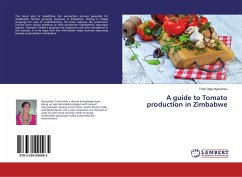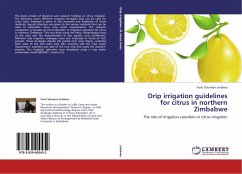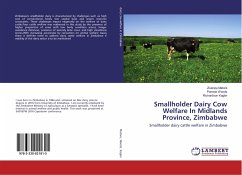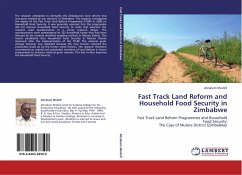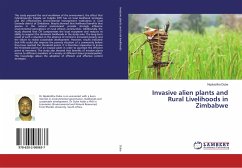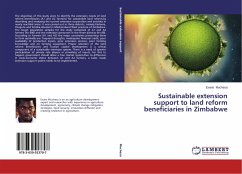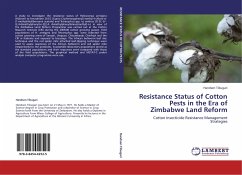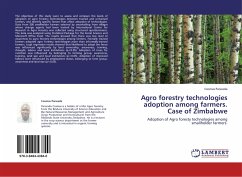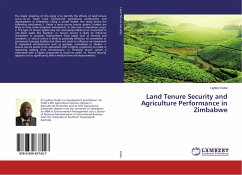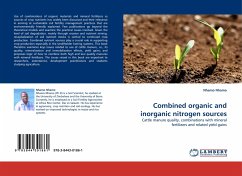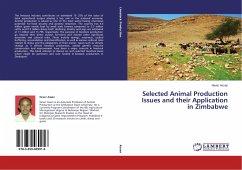
Selected Animal Production Issues and their Application in Zimbabwe
Versandkostenfrei!
Versandfertig in 6-10 Tagen
55,99 €
inkl. MwSt.

PAYBACK Punkte
28 °P sammeln!
The livestock industry contributes an estimated 15- 25% of the value of total agricultural output playing a key role in the national economy. Animal production is valued as one of the main sector having enormous potential for food security and poverty reduction. The country has 4.4 million goats mostly kept by small scale farmers compared to 5.3 million cattle and 0.3 million sheep both declining. Poultry and pigs are estimated at 11 million and 11,795, respectively. The purpose of livestock production go beyond their direct output functions and include other significant economic and cultural ...
The livestock industry contributes an estimated 15- 25% of the value of total agricultural output playing a key role in the national economy. Animal production is valued as one of the main sector having enormous potential for food security and poverty reduction. The country has 4.4 million goats mostly kept by small scale farmers compared to 5.3 million cattle and 0.3 million sheep both declining. Poultry and pigs are estimated at 11 million and 11,795, respectively. The purpose of livestock production go beyond their direct output functions and include other significant economic and cultural roles. These include savings, insurance, cyclical buffering, accumulation and diversification, as well as various cultural roles related to status and the obligations of their owner. Issues such as climate change as it affects livestock production, animal genetic resource conservation and improvement have been a major concern in livestock production. This book attempt to discuss on such selected livestock issues which might be pertinent and over looked in livestock production in Zimbabwe.



